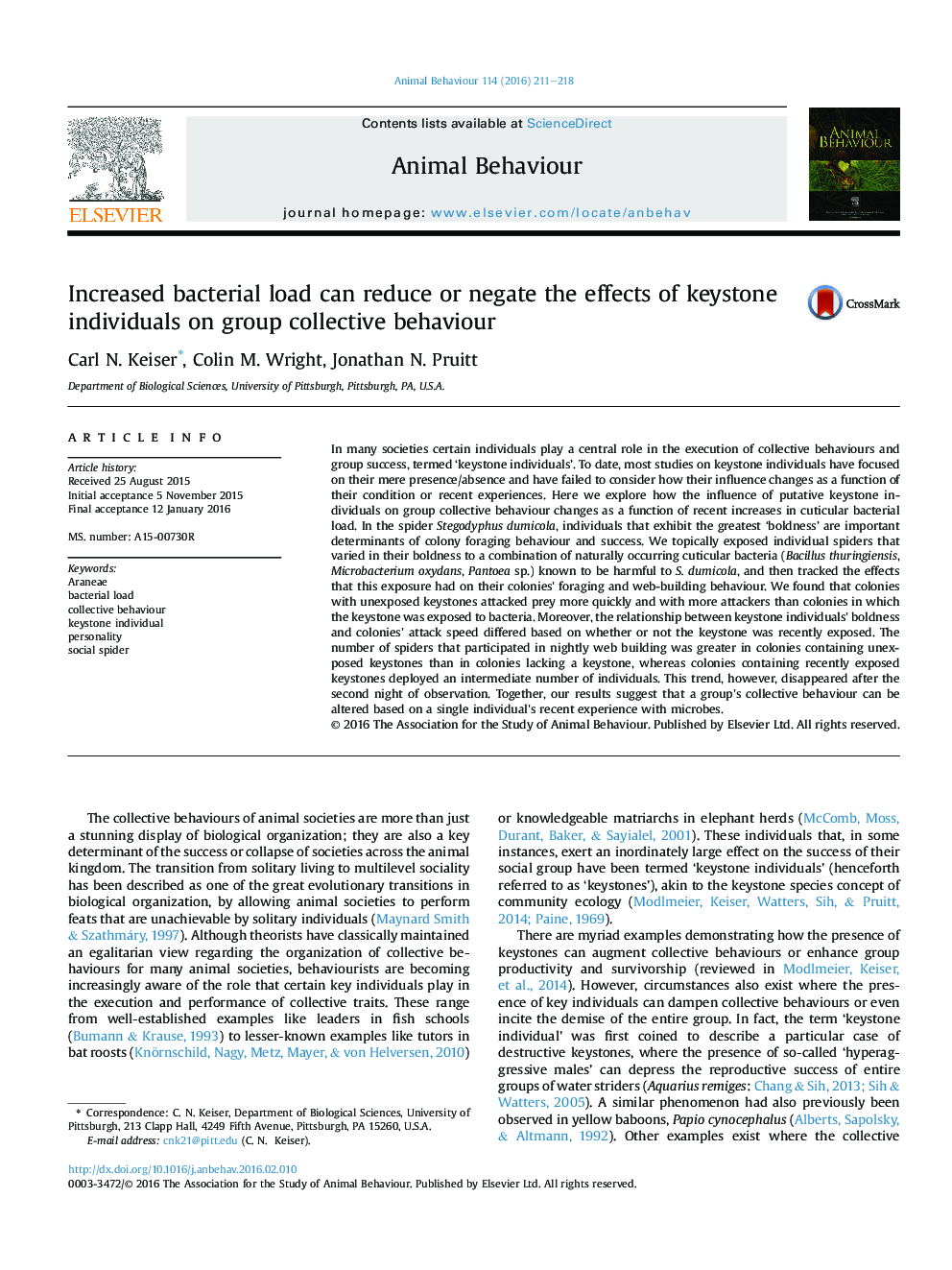| کد مقاله | کد نشریه | سال انتشار | مقاله انگلیسی | نسخه تمام متن |
|---|---|---|---|---|
| 8489205 | 1552214 | 2016 | 8 صفحه PDF | دانلود رایگان |
عنوان انگلیسی مقاله ISI
Increased bacterial load can reduce or negate the effects of keystone individuals on group collective behaviour
ترجمه فارسی عنوان
افزایش بار باکتریایی می تواند تاثیرات افراد اساسی در رفتار جمعی گروه را کاهش داده یا نفی کند
دانلود مقاله + سفارش ترجمه
دانلود مقاله ISI انگلیسی
رایگان برای ایرانیان
کلمات کلیدی
موضوعات مرتبط
علوم زیستی و بیوفناوری
علوم کشاورزی و بیولوژیک
علوم دامی و جانورشناسی
چکیده انگلیسی
In many societies certain individuals play a central role in the execution of collective behaviours and group success, termed 'keystone individuals'. To date, most studies on keystone individuals have focused on their mere presence/absence and have failed to consider how their influence changes as a function of their condition or recent experiences. Here we explore how the influence of putative keystone individuals on group collective behaviour changes as a function of recent increases in cuticular bacterial load. In the spider Stegodyphus dumicola, individuals that exhibit the greatest 'boldness' are important determinants of colony foraging behaviour and success. We topically exposed individual spiders that varied in their boldness to a combination of naturally occurring cuticular bacteria (Bacillus thuringiensis, Microbacterium oxydans, Pantoea sp.) known to be harmful to S. dumicola, and then tracked the effects that this exposure had on their colonies' foraging and web-building behaviour. We found that colonies with unexposed keystones attacked prey more quickly and with more attackers than colonies in which the keystone was exposed to bacteria. Moreover, the relationship between keystone individuals' boldness and colonies' attack speed differed based on whether or not the keystone was recently exposed. The number of spiders that participated in nightly web building was greater in colonies containing unexposed keystones than in colonies lacking a keystone, whereas colonies containing recently exposed keystones deployed an intermediate number of individuals. This trend, however, disappeared after the second night of observation. Together, our results suggest that a group's collective behaviour can be altered based on a single individual's recent experience with microbes.
ناشر
Database: Elsevier - ScienceDirect (ساینس دایرکت)
Journal: Animal Behaviour - Volume 114, April 2016, Pages 211-218
Journal: Animal Behaviour - Volume 114, April 2016, Pages 211-218
نویسندگان
Carl N. Keiser, Colin M. Wright, Jonathan N. Pruitt,
